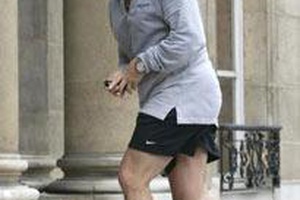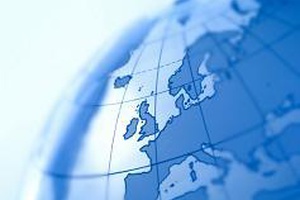-
30 juin 2007
EU Foreign and Security Policy with the Mini-Treaty

The prescriptions of the 2004 Constitutional Treaty which proved to be the least controversial were, paradoxically, those in the field of the common foreign and security policy (CFSP). The arrangements agreed to in Berlin last weekend represent little change from the 2004 text. The most important elements are the creation of the new post of “High Representative”, the post of President of the Council and the development of a European diplomatic service. These measures will not, by themselves, turn the EU into a new type of international power-broker, but they will help the Union formulate joint policy and, above all, will assist in the coherent presentation of that policy to the outside world. lire la suite
-
30 juin 2007
The European Treaty: why France wants to move quickly

The election of Nicolas Sarkozy as President of the French Republic has been widely regarded as the signal of a shift in France’s policy towards Europe. In a campaign where European issues were conspicuous by their absence, Mr Sarkozy was by far the clearest of all the principal candidates regarding his ideas for the EU. A quick fix was needed to overcome the stalemate created by the French and Dutch rejection of the draft constitutional treaty. Turkey, as an Asian country, had no justification to join the EU: instead, a type of “privileged partnership” had to be established to anchor this country to the Union. Having settled these two thorny issues, Europe should then focus on topics that matter most to ordinary citizens, such as how to create growth and jobs. lire la suite
-
24 mai 2007
Where is the end of the EU-rope?

Formal criteria don’t define the limits of Europe; they only delay the membership of determined applicants. The true limit is the EU’s capacity to absorb newcomers. Eastern enlargement challenged this capacity, but the forthcoming institutional reforms that allow the EU27 to function will – quite inadvertently – make it easier to enlarge the EU further. EU42 anyone? lire la suite
-
19 mars 2007
Treaty of Rome: the bud that unfolded into the European Union

The EU started life in circumstances that are almost unimaginable in today’s world. These irreproducible circumstances led to the creation of supranational institutions and rules – the 1957 Treaty of Rome – that are central to almost all of the EU’s difficulties as well as much of its strength. It also accounts for the fact that European integration has rarely stalled or been reversed. lire la suite
-
11 janvier 2007
Europe Needs Policies on Russia and Energy
A year ago, the European Union was at a loss when Russia cut gas supplies to Europe through Ukraine and thus to Europe. Exactly one year later, Russia cuts oil supplies to Europe through Belarus, and the EU is equally lost. Seldom haws Russia so clearly displayed its principles. It is time for the EU to adopt policies on both Russia and energy. Otherwise, the cost of Europe's disorientation may grow exponentially. -->Russia is a market economy, and even its state sector is highly commercialized. In the last few years, the Kremlin has successfully focused on boosting the price of Gazprom stocks, rendering it the third most valuable publicly traded company in the world. Part of this endeavor has been to abolish political subsidies to friendly former Soviet republics and let gas and oil prices approach market prices. Belarus was the last country to enjoy oil subsidies from Russia, and now they are gone. lire la suite
-
30 novembre 2006
A Stronger Euro Would Not Help Reforms
As currency markets start to question the soft landing scenario for the US economy and are impressed by growth prospects in Europe, the volatility of exchange rates is increasing and the euro is on the rise, both on a trade weighted basis and against the US dollar. Whether the rally will last or not is a relative issue. Assuming that the US housing market downturn remains contained and does not spread over the whole US economy, markets should be mostly sensitive to the news flow from Europe. In this regard, the latest batch of business surveys, starting with the Ifo index, was bullish for the European currency. So was the conspicuous silence of ECB's President Jean-Claude Trichet who, although repeating that Asian currencies should be more flexible, has not commented on the recent strength of the euro. lire la suite
-
15 novembre 2006
De-constructing the European Union's 'absorptive capacity'
The tendency in some political discourse now is to say that, because the Constitution that was meant to prepare for enlargement failed to be ratified, this shows that the enlargement process has now hit a roadblock called 'absorptive capacity', with the European polity suffering from a malady called 'enlargement fatigue', and therefore it would be best to call a stop and define the EU's 'final frontiers'. lire la suite
-
3 novembre 2006
Why Eastern Europe is turning anti-liberal?
Right wing populists in Poland and left wing populists in Slovakia now run the government in alliance with extremist nationalist parties. In Budapest the main opposition party Fidesz calls its supporters to demonstrate in front of Parliament for the resignation of a government on the very day the Parliament had confirmed in a confidence vote the political outcome of the elections of last May. In contrast, in Prague, a minority right wing government that has not gained a confidence vote in Parliament after five months of bickering and mobilizing against the «communist threat» is carrying out a widespread purge of the upper echelons of public administration. Last but not least, the Bulgarian entry into the European Union has been heralded by turning the presidential race into a confrontation between an ex-communist (who claims to like the EU) and a proto-fascist (who says he hates Turks, Gypsies and Jews).Why is it so ? lire la suite
-
11 septembre 2006
Why multiculturalism should not be abandonned
In an article published in the Observer newspaper recently, a reporter writes of his visit to a local mosque. It was not just any mosque, but one frequented by some of the British Muslims held by the police in the plot to bring down several transatlantic planes. The reporter talks of meeting two TV teams at the mosque. One, from the US, came to try to find out why the UK is a hotbed of Muslim violence; the other team, which was French, was there to report upon the collapse of the British model of integration. lire la suite
-
16 mai 2006
The end of a European integration process
From the 1992 inception of the Single Market Program, to the introduction of the euro, to the enlargement to 25 member countries in May 2004, the process of European integration appeared to defy gravity. Bumps like the early 1990s currency crises did not halt it, but spurred it to leap onwards to the next step. Up to late May 2005, all this bolstered the confidence of those who, when designing the Single Market in the 1980s, could not imagine that the Iron Curtain would soon collapse and viewed a single European currency as a distant theoretically unavoidable but practically difficult endeavor. Many dreams had come true, and there was no Plan B, when the French and Dutch electorate rejected the Treaty establishing a Constitution for Europe. lire la suite
-
4 mars 2006
Germany is on the right track
By voting for a new federal government led by the Christian Democratic Party (CDU), German voters underlined their readiness for economic and social reforms. The election results allow for the interpretation that a vast majority of voters support the continuation of reform policies with higher speed and broader scope. Hence, the new “Grand Coalition” of Christian and Social Democrats can be seen as a “companionship of destiny” condemned to success and confronted with high expectations by the German people. lire la suite
-
2 mars 2006
Angie in Germany: 100 days later
Around the world, a glass is always either half-empty or half-full, depending on how you look at it - and how thirsty you are. In depressed Germany, people have a habit of seeing things more empty than they are, and the economic outlook is no exception. Yet things have begun to look better in the last few months: stock market, a tried-and-true predictor of a recovery, is booming; the DAX index is up by about 30% relative to a year ago. Investment is picking up, and foreign hedge funds have become increasingly sanguine about Germany. According to the Ifo Institute survey, managers are more optimistic now than any time since reunification fifteen years ago. Industrial production in the former East is up by 30% since 2000 (compared with only 4% in the West!) Even German analysts are even talking about a «Merkel-Boom.» Are good times right around the corner? lire la suite
-
24 décembre 2005
British Presidency: the sad final act
The long battle over the EU budget ended last week with an agreement that leaves everything unchanged. It was a rare display of hypocrisy. The horsetrading involved just peanuts for some of the major actors involved in the deal. Governments running yearly budgets of the order of 700 billion euros or more were fighting over a few million Euros. The final result is a six-year, 2007-13, financial package largely concentrated on transfers to agriculture (42 per cent of the budget) benefiting roughly 3 per cent of the EU population. Another 35 per cent of EU spending is allotted to structural funds whose effectiveness is highly controversial. lire la suite
-
12 décembre 2005
Security and Defence: the mediocre balance sheet of British presidency
With the EU in a deep malaise as a consequence of the French and Dutch rejection of the constitutional treaty, much is being made of the new role of European Security and Defence Policy (ESDP), suddenly recast as the one moving part of an otherwise paralysed European integration process. The establishment of the EU’s “battle groups” as Europe’s rapid action force, the vital role of the EU in keeping the peace first in Bosnia and now in Atjeh, the ramping-up of the European Defence Agency: these and others can be cited. lire la suite
-
Page 2 sur 2 1 2
